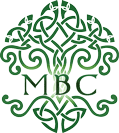Integrative Therapy
Finding the right counselor for you
Today there are so many forms and styles of therapy, it can be difficult to decide on the right one. The type of psychotherapy that's right for you depends on your individual situation. However, finding the right therapist can help you resolve many of life’s difficulties. I have many years of experience and training in a wide variety of therapies, with a proven track record of success. If you choose to work with me, you will have an experienced, professional counselor whom you can trust who will help you get your desired result. After a thorough intake identifying your needs and comfort lever, I will design a treatment plan that's right for you.
My Therapeutic Approach
I believes that clients have the potential to realize their own personal fulfillment. You are the expert regarding your own life; I am here to share my education, experience, and skills with you in order for you to achieve your own goals. I strive to achieve the following in my sessions:
- an atmosphere of openness and acceptance
- a feeling of genuine empathy
- a reflection of the genuine interest and investment in your healing.
With this in mind, I integrate practices from other therapies to help you achieve your goals. I mainly draw from the following therapies:
Cognitive - Behavior Therapy
Cognitive-behavioral therapy is a focused, problem-solving psychotherapy that has been highly effective for the treatment of many health problems, including anxiety and depression, personality disorders, substance abuse, and behavior disorders. An evidence-based treatment, the therapy is based around helping you understand, manage, and change your thoughts (cognitions) thereby helping you change your behaviors. The intent is to help you recognize and reassess your negative thought patterns and replace them with positive thoughts that more accurately reflect reality. Using cognitive-behavioral therapy, I am able to teach effective self-help skills that help your change the way you think, feel, and behave now.
Eye Movement Desensitization and Reprocessing Therapy (EMDR)
EMDR is a research-based therapy that can help resolve many issues, including depression, anxiety, addictions, post-traumatic stress disorder (PTSD), panic attacks, complicated grief, low self esteem. and of course traumas such as sexual, physical, emotional abuse and/ negative emotions associated with major disasters. Based on the theory that traumas change our brain chemistry and often keep us "frozen in time" with resulting mental disorders. Having been trained by the EMDRIA Institute, I follow an 8-step protocol which serves to "re-wire" and open up neural pathways so that you can begin to change your perspective about the trauma and heal. EMDR is a holistic therapy in that it incorporates body, mind, and spirit. This therapy has been proven to work with couples as well.
Family Systems Therapy
When working with couples and whole families, my approach is centered around the idea that the couple or family is greater than the sum of its parts. The individuals are interconnected, and movement in one affects movement in all. Therefore, I focus on how the individuals are relating to one another. Often couples or families scapegoat one person in the system, making them the bad guy. A good example of this is demonstrated in alcoholic families where patterns of addiction and codependency are pervasive: for instance, the husband drinks to excess; the wife nags and belittles the addict, and in response the husband drinks more. The cycle continues and eventually spirals out of control.
I add the dimension of multigenerational theory to my sessions, as we seek to uncover negative relational patterns, often unconscious, that have gone on for generations. This increases couples and family awareness, and healthier patterns are established and maintained for more fulfilling relationships. Family strengths are also identified and reinforced, to build on the positives.
Solution-Focused Brief Therapy
Becoming more popular in recent years, solution-focused therapy places emphasis on
- helping clients become more aware of their successes rather than their problems
- keeping the therapy brief so that problems can be solved in a shorter amount of time.
Using this approach, I carefully structure the sessions to focus on what is working, thereby increasing client's hope and setting up a positive feedback loop for learning and repeating successful behaviors. I was trained in this therapy when I interned for the US Army Family Life Chaplain Training Center, and I found it very effective with couples and with populations who had limited time for therapy due to upcoming moves or other time/financial constraints.
With new research, particularly in neuroscience, the field of psychotherapy is continually evolving. I regularly consult journals, attend seminars, and keep abreast of the field to stay fresh, and bring my new learning and training into our therapy sessions.
If you have questions contact us.

